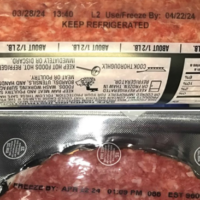
Chansom Pantip/iStockBy ANNE FLAHERTY and CHEYENNE HASLETT, ABC News
(NEW YORK) — It’s the million dollar question everyone is asking: When will life return to normal? And will school be open this fall?
The answers are all over the map — from Texas and Mississippi governors declaring their states already open and lifting mask mandates, to health experts ominously warning the virus will always linger.
The reality, though, depends much on how you define “normal.” And, if enough Americans step up for a shot this summer, it might not be as depressing as you think.
Experts say fall could become the season of a “new normal” in which the world slowly reopens and people will reconnect but with masks, routine testing and possibly even vaccine cards to allow them enter movie theaters or restaurants.
“It’ll be so gradual, we probably won’t even notice it,” said Howard Markel, a historian of medicine at the University of Michigan and a pediatrician. “It’s not a light switch or like V-Day — like, it’s over, you know, we won! It’s not that way.”
So what could derail it all? Infectious disease experts agree at least 70-85% of the country needs to become immune to starve the virus. Markel said he favors 90% with a virus this stealthy.
“It all depends on how many people roll up their sleeve and get the immunization, you see,” Markel told ABC News. “So that’s my fear, that’s what keeps me up at night.”
Here’s what health experts say could happen this year:
Spring will be a time of uncertainty, and possibly more deaths
The country is at a standstill with the virus. Even with the national seven-day average down some 74% in a matter of weeks, the U.S. is still averaging some 64,000 new cases per day. That average is on par with last fall just before cases exploded in the holiday season.
That stalled progress means the country is about to head into the season of spring break trips, graduation parties, family vacations and neighborhood gatherings with already high viral transmission, all the while a new, more transmissible variant originating from Britain is expected to become the most dominant strain of the virus by mid-March.
Health experts warn with states like Texas and Mississippi reopening now and lifting mask mandates, there could be one last heartbreaking rise in new cases — followed weeks later by hospitalizations and deaths — just as the nation is on the cusp of mass vaccinations.
“I know the idea of relaxing mask-wearing and getting back to everyday activities is appealing. But we’re not there yet,” said Dr. Rochelle Walensky, head of the Centers for Disease Control and Prevention. “We have seen this movie before. When prevention measures like mask mandates are rolled back, cases go up.”
Fingers crossed, summer becomes the season of mass vaccinations
If production can keep up, the U.S. expects to head into June with enough vaccine doses for 300 million Americans. The vaccines will still be limited to adults, with some supply available for teens 16-plus.
“I think that’s a huge undertaking,” said Simone Wildes, an infectious diseases physician at South Shore Health in Massachusetts and an ABC News medical contributor, of the mass vaccination rollout.
“But if we can get it done June, July … we might be able to have a decent summer. But it really depends on how things unfold in the next few months,” she said.
Markel too predicted that by early July, almost all “early accepters” of the vaccine will have gotten a shot. At that point, much of the nation might be able to expand their “pod” — slowly.
Markel said he still wouldn’t recommend putting down an early deposit on a nonrefundable beach house with extended family this summer.
Wildes agreed.
“Be flexible that if you know people are not vaccinated, if there is an increase in the number of cases, in particular with the variants, that we can cancel those plans,” Wildes said. “There’s nothing wrong with making tentative plans, but I think we just have to be mindful of where things are at that particular point.”
Depending upon how many Americans become vaccinated, fall could become the ‘new normal’
Dr. Anthony Fauci said Thursday that he now thinks by “fall, mid fall, early winter” that everyone might head back to work, kids will be in school and indoor dining might be humming once again.
His prediction follows a White House announcement that one vaccine maker, Johnson & Johnson, would be able to accelerate its supply. But it would still take the summer months to deploy the vaccines.
“By the time we get to fall with the implementation of the vaccine program, you’re going to see something noticeably in the direction of going back to normality and very likely will get there by the end of the year,” said Fauci, the nation’s top infectious disease expert and President Joe Biden’s chief medical adviser.
Dr. William Schaffner, professor of Preventive Medicine and Infectious Diseases at Vanderbilt University Medical Center, said he prefers to put “normal” in quotes now because life would likely look very different. Online business meetings, for example, might become more commonplace than packed conference rooms, if possible.
“Masks ought to be one of the last things that goes,” Schaffner said. “They’re a bother, they’re dorky, but they’re so effective and so easy and so cheap. They wouldn’t be the first things I take off; they would be the last.”
But if enough people are vaccinated, he agreed that schools and colleges should be able to open with low risk this fall and the U.S. could see a brighter Thanksgiving.
“My anticipation is that we will be into this ‘new normal’ by the end of summer and into the fall, and we can all — I hope — give thanks at Thanksgiving, in a more conventional fashion, sitting around the table with our family, friends, relatives, with masks off and give thanks and be joyful that we have come through this awful pandemic and survived,” Schaffner said.
Still, every expert interviewed by ABC News described a kind of cautionary “wait-and-see” approach. Vaccine hesitancy among some Americans remains a concern. And if viral transmission in other countries remains high, the virus could mutate in ways that chip away at the efficacy of the vaccines — potentially putting even vaccinated individuals at risk.
“We might get back to some of the things we’re accustomed to but to say we’re going to get back to normal — it’s not going to be the same,” Wildes said.
“I think it’s even going to be hard for me to hug people,” she later added.
When it’s all over, however many months or years from now, Markel, who has spent 30 years studying pandemics, is sure of one thing: “We’ll forget all about it.”
“We’ll go on our merry way,” he said. “I’m telling you, I’ve studied a lot of pandemics. That’s the end. It’s like amnesia. And that’s what I worry about.”
Copyright © 2021, ABC Audio. All rights reserved.















